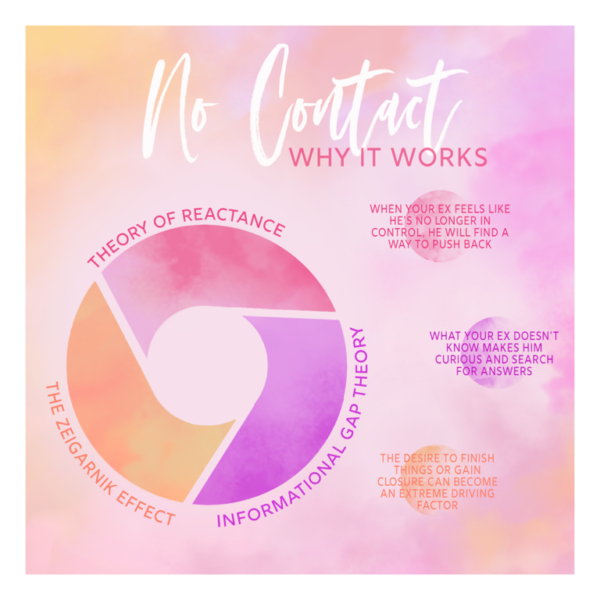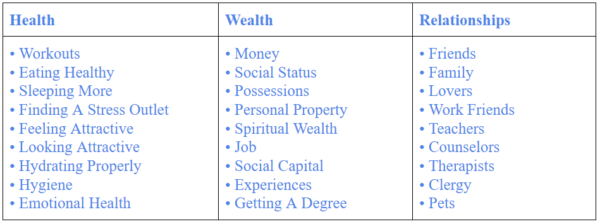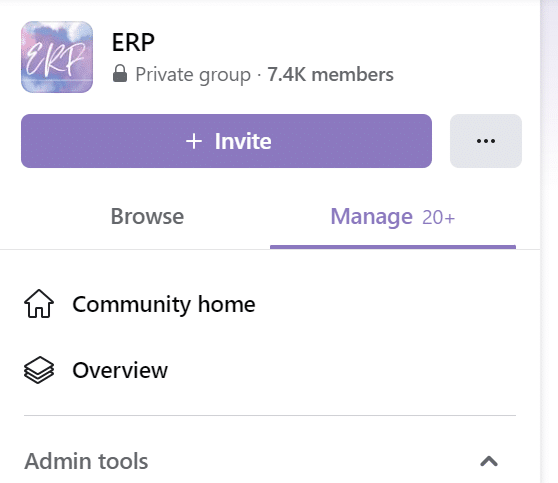If you want to learn how to stop talking to your ex then you came to the right place.
In this complete guide I’m going to break down my eight step method that’s been working for our clients.
- Look At The Triad Theory Behind No Contact
- Change Your Exes Name On Your Phone
- OPTIONAL: Block Them And Give Their Number To A Trusted Friend For After No Contact
- Find A Hobby That Will Make You Obsessed
- Volunteer
- Travel With Friends
- Employ Community Accountability
- Employ Financial Accountability
Let’s jump right in!

What Are Your Chances of Getting Your Ex Boyfriend Back?
Take the quizStep #1: Understanding The Triad Theory Behind No Contact
Step one involves understanding the triad theory behind no contact.
The no contact rule is one of the most discussed subjects in the breakup industry, largely due to its perceived effectiveness.
However, people often struggle with implementing the rule with their exes, mostly because they don’t comprehend the science behind it.
At its core, the no contact rule operates on a triad of theories that work together to maximize its efficacy. While I have often stated;
That understanding these theories is less important than utilizing the time away from your ex to move on,
For those who require more clarification, let’s delve into this triad theory.
- The Theory Of Reactance
- Information Gap Theory
- The Zeigarnik Effect
Reactance
The theory of reactance is a psychological concept stating that when individuals feel their behavioral freedom is threatened, they strive to reclaim it.
Implementing the no contact rule can stimulate your ex’s dormant reactance, making them feel out of control and thus prompting them to regain that control.
This loss of their behavioral freedom to interact with you often incites an intense reaction, potentially resulting in an influx of messages from your ex attempting to reestablish contact.
This is reactance in action.
Information Gap Theory
Next, we have the information gap theory, which posits that people are driven by curiosity about what they don’t know.
Your abrupt silence raises questions within your ex,
‘Why have you stopped talking to me?’
‘Why are you ignoring me?’
This unfamiliarity cultivates an information gap, prompting them to seek answers and understand your behavior. To close their own information gap.
The Zeigarnik Effect
Lastly, there’s the Zeigarnik effect, named after Russian psychologist Bluma Zeigarnik,

What Are Your Chances of Getting Your Ex Boyfriend Back?
Take the quizWho found that people tend to remember incomplete or interrupted tasks better than completed ones.
This principle underscores my belief that it’s better not to inform your ex about your decision to enforce the no contact rule but simply to initiate it. The abrupt interruption of communication tends to be more noticeable, and the desire for closure can become a powerful motivator for your ex.
However, without implementing the no contact rule, you essentially forfeit the opportunity for these three strategies to work to your advantage. If you can’t stop communicating with your ex, this triad of theories will remain ineffective because they will be dormant.
Step #2: Change Their Name On Your Phone
Our next suggestion might sound silly, but it’s prove to be surprisingly effective.
One of the really interesting things that developed in our community is many of our members would change their exes name in their phones.
And the members have come up with some pretty amusing names, ranging from “potato,” and “do not contact” to “stupid face”.
We believe this method works because it serves as a final reminder before you might be tempted to break the no contact rule.
So picture this scenario: you’ve decided to put the no contact rule into practice. You’ve bought into the science behind it and the idea of moving on from your ex.
Everything goes well until around day 14 when something triggers the urge to reach out to your ex. As you pick up your phone and start to search for their name, you’re reminded that you’ve changed it to “do not contact” or “cockroach” or something similarly jarring.
That visual cue might be enough to prevent you from making the call or sending that text.
But changing your ex’s name in your phone isn’t a cure-all. It’s more of a cosmetic change, a small deterrent, but it isn’t going to create a massive difference.
That’s where our third step comes in,
Step #3: Block Them Or Give Their Number To A Trusted Friend For After No Contact
To be honest this step is optional.
While it’s fair to say that the second step, changing their name in your phone, is a cosmetic adjustment and may not produce the most profound change this third step is a dramatic swing the other way as it involves either blocking your ex or entrusting their number to a close friend until after the no contact period.
Now, why do I call it optional?
While implementing the no contact rule requires discipline, knowing if your ex attempts to reach out can be insightful.
Blocking them might rob you of this information, leaving you uncertain about how they’re coping with the no contact rule – creating your own information gap.
However, if you feel you’re lacking in self-control, and you’re certain that you’ll break the no contact rule, taking a more drastic step might be necessary.
You could block them, thus eliminating the temptation to reach out.
Or, if you think you might unblock them, consider erasing their contact information from your phone and giving it to a trusted friend who can help hold you accountable.
This strategy can provide the extra push you might need to maintain no contact.
However, I want to emphasize that this step is optional and not something I universally recommend. It’s intended for those who are certain they won’t be able to resist the urge to communicate with their ex, despite their best intentions.
Step #4: Find An All Encompassing Hobby
When I was planning this article, I found myself grappling with potential examples of new hobbies, but kept returning to the idea of learning a new language.

What Are Your Chances of Getting Your Ex Boyfriend Back?
Take the quizI’m a strong proponent of the ‘holy trinity’ concept in recovery,
(Read this if you haven’t: the-holy-trinity)
But basically divide your life into the three essential categories,
- Health
- Wealth
- Relationships
The goal is to find balance among these three elements, and whenever possible, seek activities that intersect at least two of them.
For instance, learning a new language not only occupies your time and mental energy, benefiting your mental health, but it also equips you with a valuable skill that could potentially increase your employability. This, in turn, can contribute positively to your wealth.
Additionally, having the ability to communicate in a new language can enhance your social interactions, thus positively affecting your relationships.
Pursuing such an endeavor could be well worth your time.
Now, will this new hobby become your magnum opus? Probably not. But the idea here is to find something that captivates you, that you’re so passionate about, it diverts your focus from your ex.
That, I believe, is a common issue people grapple with during breakups.
They tend to fixate excessively on their exes, often lacking something meaningful in their own lives to devote their time and energy to.
Step #5: Volunteer
My wife and I recently collaborated on an article discussing the significance of volunteering, particularly in its potential to boost your mood after a breakup.
I’ve previously mentioned there are three strategies to help you move on from a breakup.
- Firstly, reappraising your ex, which involves shifting your focus from the positive aspects of the relationship to the negative ones.
- Secondly, accepting your situation, that is, coming to terms with the fact that you’re no longer in a relationship, and that’s okay.
- Finally, seeking distractions, as we touched upon with the example of learning a new language.
Volunteering provides another excellent distraction that can also lift your spirits in your current situation.
My wife found ample research on this and shared her own experiences on how to volunteer, what to volunteer for, and what not to do. She’s very passionate about children and community development, so any volunteer work in those areas suits her well.
Yet, she shared an instance from her youth when her grandfather insisted she volunteer at a nursing home.
She did not enjoy it because it wasn’t a cause she was passionate about.
What we can glean from this is that when deciding to volunteer,
Choose a cause that genuinely interests you and offers you a sense of fulfillment, rather than merely ticking a box for community service. The passion you bring to your volunteer work matters.
It can help you accept your current situation, post-breakup, and cease communication with your ex. The act of helping others will not only serve as a distraction but also facilitate acceptance of your situation, all while making you feel good about contributing positively to the world.
Step #6: Travel With Friends
While this advice may seem a bit obvious or even superficial, the benefits are genuine. Traveling with friends during a difficult breakup can have significant positive effects.
A personal memory of mine illustrates this perfectly.

What Are Your Chances of Getting Your Ex Boyfriend Back?
Take the quizOne of my fondest recollections occurred the day I experienced a breakup, and it involves one of my closest friends.
When I was 19, my best friend picked me up at 5 am to embark on a road trip across Texas to Six Flags Over Texas, a massive theme park known for its roller coasters.
The night before, my girlfriend and I had a huge argument, and the tension lingered into the next day. A few hours into our car ride (my friend was driving,) I attempted to smooth things over with a text.
However, her response was dismissive, prompting me to send a text stating, “I’m done.”
What I intended to mean was that I was done with the conversation, not our relationship.
However, a few hours later, when I tried to reconnect, she interpreted my previous message as ending the relationship. Despite this misunderstanding, the ensuing shock, and confusion, I was already en route to a day full of enjoyment.
This spontaneous trip, and the company of my friend, allowed me to distract my mind from the breakup.
The thrill of riding roller coasters and spending time with my friend provided a euphoric counterbalance to my personal turmoil.
In what was one of my darkest moments, I experienced a swift emotional turnaround.
It felt liberating to let go of the pressure of trying to patch things up and just be myself. I reveled in this newfound freedom. This liberating experience wouldn’t have been possible without traveling and my best friend’s company.
Hence, I truly believe that traveling with friends can be instrumental in refraining from contacting your ex. That road trip to the amusement park was pivotal in helping me avoid talking to her.
Step #7: Community Accountability
The next step I suggest involves finding community accountability.
While I do not wish to indulge in gratuitous self-promotion, I can only speak from my own experiences.
We run one of the world’s largest communities for people going through breakups.
A key reason why this community is so beneficial, and why people keep returning to it, is the layered accountability it provides.
There are essentially three tiers of accountability within our community.
- The first is peer-to-peer accountability. This refers to partnering with other individuals who are also navigating the rough seas of a breakup concurrently. They understand your feelings, share your experiences, and possibly make the same mistakes you do. Consequently, they can hold you accountable.
- Next, we have veteran members who serve a crucial role in maintaining accountability. These are individuals who have walked this path, completed the program, and can provide guidance based on their experiences. They can articulate why you should resist the urge to contact your ex and provide myriad examples where such actions proved unfruitful.
- Lastly, there’s expert accountability, provided by professional coaches like myself, my wife, and other members of the breakup recovery team. Sometimes, accountability is even maintained by appointed moderators—typically best performers or veteran members—who spend a significant amount of time pondering the best strategies to handle various breakup scenarios.
When you combine these three layers of accountability, it cultivates a secure environment where you can be confident of receiving appropriate advice.
Moreover, it offers diverse perspectives.
So, if the peer-to-peer group, veteran members, and experts all concur on a piece of advice, you can be pretty confident that it’s the most reliable guidance to follow.
Step #8: Financial Accountability
Sometimes community accountability isn’t sufficient. Occasionally, one needs to take a more drastic approach, which brings us to our final step: financial accountability.
There’s a humorous show I enjoy called ‘Nathan For You.’ It’s about a guy who pretends to be a business advisor but offers outrageous ideas to business owners, then documents the results. An intriguing episode involved the notion of an ‘accountability letter.’
The premise was to encourage people aiming to lose weight to write a letter containing a deep, dark secret.
The understanding was that this letter would be mailed to their significant other if they failed to reach their weight loss goal. Often, these individuals didn’t have such a secret, so they were instructed to invent one—like infidelity, for instance.
The implicit threat was that their fabricated secret could be revealed if they didn’t meet their weight loss goal.
Interestingly, two out of three participants accomplished their goal.
While I’m not endorsing self-blackmail, I believe there’s value in having a consequence for repeatedly contacting your ex. One of the most effective deterrents, short of resorting to ‘Nathan For You’ extremes, is financial accountability.
There’s a fascinating website, STIKK, which exists for precisely this purpose: to hold people accountable.
The way it works is simple.
You choose a goal—be it weight loss, regular exercise, quitting smoking, finishing a race, maintaining your weight, or any customized goal—and make a self-contract by paying STIKK a sum of money. If by the stipulated date you haven’t achieved your goal, STIKK keeps the money; if you have, STIKK refunds your money. This creates a financial incentive for accountability.
I bring this up because it seems ideal for implementing something like the no contact rule.
For example, if you have $10 and decide to pay STIKK with this goal: ‘I will not talk to my ex for 30 days,’ then you know you’ll lose $10 if you breach this rule.
This approach can be an effective method of self-accountability, especially if community accountability, traveling with friends, volunteering, learning new languages, blocking your ex’s number, changing their name on your phone, or any of the other strategies we’ve discussed don’t prove effective.
It’s an out-of-the-box way of thinking, and that’s what I appreciate about it.
It could very well be your last line of defense in maintaining the no contact rule.



